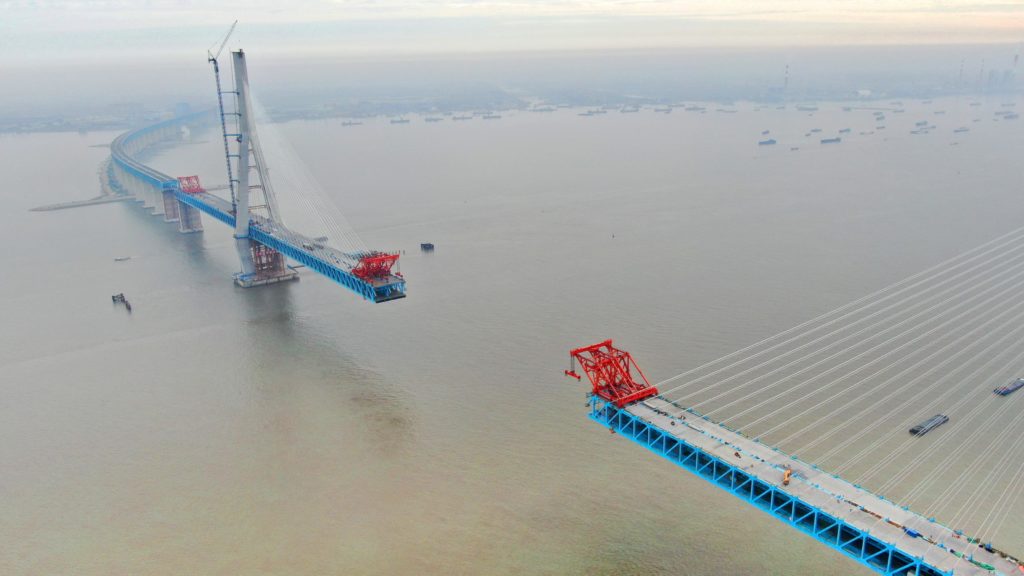
A key resource for every organisation, interim staff provide expert support in times of increased demand, organisational change, and between permanent members of staff. Ellwood Atfield has close relationships with those who have chosen to work on a contract basis at all seniorities, especially in communications, PR, public affairs, and policy.
Olivia Freeman, Head of Interim Practice speaks with Lara Cresswell, MCIPR Senior Communications Partner at Stake Communications and Nicola Brown, MCIPR Director of Communications at nbthinks, exploring the value contractors add, the challenges they face and advice on starting an interim career.
 Lara was a Director at Cohn & Wolfe before specialising in senior interim roles for brands such as Motorola, Jobsite, Skrill and, most recently, Paysafe Group as interim SVP of Group Communications. She also consults directly to clients via Stake Communications.
Lara was a Director at Cohn & Wolfe before specialising in senior interim roles for brands such as Motorola, Jobsite, Skrill and, most recently, Paysafe Group as interim SVP of Group Communications. She also consults directly to clients via Stake Communications.
 Nicola has worked as the Head of Public Relations and Communications at BMI Healthcare and at Norfolk and Suffolk NHS Foundation Trust, as well as at nbthinks.
Nicola has worked as the Head of Public Relations and Communications at BMI Healthcare and at Norfolk and Suffolk NHS Foundation Trust, as well as at nbthinks.
What are the key skills a contractor must possess in order to act as a positive disruptor in a short amount of time?
LC “When in an interim role, I often hire other interims to build or reshape corporate comms teams to respond to a specific challenge. At the senior interim level, where over qualification for a role is a given in any candidate short list, I look for individuals who exhibit key differentiators such as:
- Curiosity – An innate interest in, and ability to get under the skin of, a company, team or challenge, knowing where and what to look for, and recognising patterns in business behaviour.
- Passion – For problem-solving and taking pride in the job at hand. Trusted with steering comms teams through periods of uncertainty or change, these individuals find challenge stimulating and stake their reputation on delivery.
- Being true to themselves – By giving the counsel and advice the situation deserves, not what the C-suite want to hear. These individuals are hired to be the expert in the room and can provide support and challenge in equal measure.
- Ability to build trust and relationships swiftly – The ability to identify the direct and indirect stakeholders who can impact on or contribute to the role, and to proactively engage with them. Extended onboarding and learning curves are often not a luxury afforded to interims.”
What are the challenges faced by contractors and the teams they support?
NB “Contractors can bring a fresh pair of eyes, industry intelligence and an injection of creativity to support in-house teams. However, those in-house teams can also sometimes feel pretty agitated that some external agency is seen as ‘better’ than they are, bringing (in their eyes) nothing new to the table but charging inflated fees and then taking all the credit for a successful campaign which the in-house team feel they could have handled.
However, those in-house teams that embrace working with contractors can really reap the benefits in terms of their own professional development as well as the support to the employer. Speaking from my own point of view, much of my media training and media messaging skill knowledge was learned at the feet of an external trainer who had been called in to help with an issue when I was with a previous employer. And when another employer needed specialist financial PR support that was outside my area of knowledge, I was really pleased to work with an external contractor who not only understood all these weird finance terms, but was also connected with the journalists who also understood it. I benefited, the employer benefited and the contractor was also able to add to their wider overview of the sector.
Contractors would do well to make sure they understand the client and its in-house teams, and work hard at that relationship. They need to be able to challenge constructively, and to bring an oversight of the wider landscape. They need to be up to date with their knowledge of journalists, the digital/social/influencer landscape and the characters and personalities within and of the sector. They should be able to draw from experience of what has worked well within their own agencies and in other agencies too.
For clients, the flexibility of a contractor comes with the benefit of having them when you need them, and flexing down when you don’t. There are fewer costs (sick pay, holiday pay, training fees, insurances, desk space, etc) involved with having an agency you pay per campaign. And when the campaign is finished, there are no costs of head-reduction both financial and emotional.”
What advice do you give to people who are considering a move into the world of contracting?
LC “Contracting is not for everyone. The reliability of a steady monthly salary and the benefits that come with full-time employment take a huge amount of stress out of many peoples’ lives. Interims need to be comfortable with change and uncertainty – both in terms of constantly shifting between challenges, company cultures and ways of working, and in dealing with the ebb and flow of income.
I found that learning to say ‘no’ was truly empowering. If a role, project spec or timeframe appears set up to fail, say so. You’re the expert or you wouldn’t be offered the role. On several occasions, I’ve found that saying no has resulted in the brief or other expectations being adjusted, or even an uplift in day rate to better reflect the challenge and/or commitment required. Being able to say no also enables you to walk away from some briefs to protect your reputation.
I don’t know if there is an ‘ideal’ background for a professional interim, but a breadth and depth of experience certainly makes you more marketable. I became an independent consultant in 2007 after 16 years in PR agencies. The capabilities and contacts developed during that time have led to the most stimulating and challenging interim gigs ever since.
“learning to say ‘no’ was truly empowering”
I’d also encourage that you operate from the mind-set of a business, regardless of whether you’re a limited company or sole trader. Know and protect your value, both in terms of your day rate and the capabilities you offer. Know your costs such as no holiday pay or sick leave, and outgoings such as personal liability and professional indemnity insurances. Know that it’s ok to say ‘no’. These points are key to determining what’s negotiable and what isn’t when considering any new contract.”
Nicola adds, “If you are considering moving into contracting, I would recommend setting a few ducks in line first. There are practical things like registering as self-employed or as a limited company, registering for VAT or not, and deciding on your day rate. Then there are the other practical things like making sure you can sustain a period of perhaps no income, or setting up your first client to make sure you are covering the basics. Sometimes we forget to PR ourselves too – making sure you tell people you are contracting, reconnecting with old contacts, making sure that people know you are available and what you can do is important. Register with an interim or a freelance matching service – for example, make sure that you speak with Olivia at Ellwood Atfield. Definitely update your LinkedIn and indicate you are ‘available’ for recruiters. Get testimonials, a professional headshot, maybe also a talking-head video to introduce yourself to the world. It’s important to establish your niche – remember that clients will be hiring you for your speciality and expertise.”
How to work with recruiters, what do ask for and what to avoid.
Recruiters have the contacts and means to introduce you to hiring managers, professionally represent you, and walk you through a recruitment process for an interim role with ease. It is always a good idea to meet your recruiter face to face in order for them to gain a thorough understanding of your experience. As any good PR person knows, an engaging narrative is important; for example, what motivated you to make X decision, where do you want to be in 5 years? This enables us to provide tailored strategic advice and to also identify and address any potential obstacles that are hindering you.
“open communication is key and feedback is reciprocal”
It is worth considering that as obvious as this may sound if you are applying for multiple roles as a contractor, it is very important that you remain aware of which agency is representing you for any role and where your details are being sent. Failure to do so can result in perceived misapprehension and doesn’t reflect well on any party.
In line with this, open communication is key and feedback is reciprocal. A common bugbear is that some recruiters do not feedback to candidates where they stand in the process, nor what the outcome is. It is the job of a recruiter to always ask for feedback, and to push clients on this, especially if a candidate has taken the time to prepare for an interview, therefore, it is understandably frustrating when this doesn’t happen. In the same vein, you should let your recruiter know if anything changes, as it frequently does. This makes for a good relationship with your Consultant and ensures that you are not on the receiving end of unnecessary contact.
How We Can Help
If you are thinking of moving into the world of contracting or are looking for the next role we’d love to meet you. Olivia heads the practice recruiting to corporate communications and is supported by Emma and Florence who cover junior-mid level policy and communications and Rachel who deals with mid-senior level internal communications and public affairs.
We don’t publish all our roles on our job board. The best way to hear about these is to send us your CV, come for a coffee and we can contact you with any relevant opportunities.











